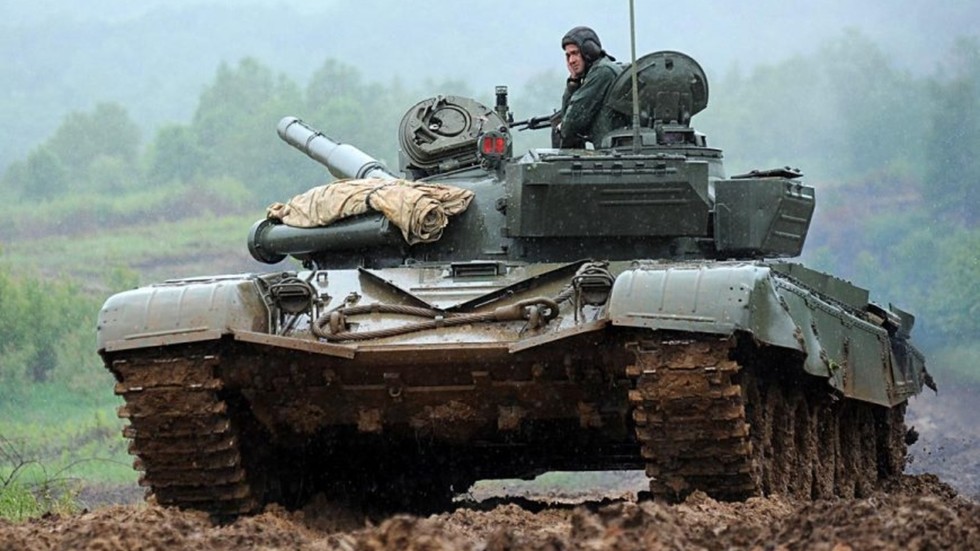Croatia’s recent announcement regarding its military assistance to Ukraine marks a significant shift in its stance amid the ongoing conflict with Russia. The Croatian Defense Ministry confirmed that it would supply Ukraine with a quantity of older armor, specifically 30 Yugoslavian-made M-84 tanks and 30 M-80 infantry fighting vehicles, as part of a strategic agreement with Germany. This arrangement was formalized during talks between Croatian Defense Minister Ivan Anusic and his German counterpart, Boris Pistorius, in Berlin. The deal not only serves to bolster Ukraine’s defenses against Russian aggression but also provides Croatia with a discount on future purchases of advanced Leopard 2A8 tanks from Germany, reflecting a collaborative approach between NATO allies.
The M-84 tanks and M-80 infantry fighting vehicles are legacy systems, originally produced during the Yugoslav era and subsequently upgraded in Croatia following the dissolution of Yugoslavia. The M-84 is a main battle tank derived from the Soviet T-72 design, with production commencing in the mid-1980s. On the other hand, the BVP M-80 is a tracked infantry fighting vehicle that saw manufacturing from the 1980s and carried on until the breakup of Yugoslavia in the early 1990s. While these vehicles may be older, their deployment is intended as a first step in a broader defense support program aimed at fortifying Ukraine’s military capabilities during a prolonged conflict with Russia.
The rationale behind this transfer of military equipment involves mutual benefits for the three parties involved: Croatia, Germany, and Ukraine. Croatia is looking to modernize its own armed forces by transitioning to more advanced German-made tanks, aligning its military capabilities with NATO standards. By receiving a discount for its older equipment, Croatia is effectively ensuring that its defense spending is optimized while simultaneously playing a supportive role in Ukraine’s ongoing struggle. The agreement also emphasizes NATO’s commitment to collective defense, whereby member states support each other and allied nations facing external threats.
Despite this renewed military collaboration, Croatia’s historical perspective regarding the conflict has been complex. Last year, Croatian President Zoran Milanovic openly questioned Ukraine’s status as an ally and criticized the European Union’s decision to grant Kyiv candidate status. His administration had previously expressed reluctance to engage deeply in military training for Ukrainian forces, reflecting concerns about being drawn into the broader conflict. Nevertheless, Croatia’s actions in recent months, including the provision of Mi-8 transport helicopters and robotic mine-clearing systems, have indicated a gradual shift towards support for Ukraine, showcasing a more active role as the conflict progresses.
Meanwhile, Russia continues to express its disapproval of Western military support for Ukraine, warning that such actions will only serve to prolong hostilities and increase the prospects of direct confrontation with NATO. Russian officials have labeled the arms deliveries, intelligence sharing, and military training as evidence that Western nations are effectively becoming combatants in the conflict. This rhetoric underscores the escalating tensions surrounding the delivery of military support to Ukraine and highlights the geostrategic implications of such actions. As the conflict remains volatile, the potential for increased confrontation among the involved parties continues to rise.
In conclusion, Croatia’s decision to provide military assistance to Ukraine represents a notable evolution in its diplomatic and military engagement amid the broader framework of NATO cooperation. With the promise of modernizing its armed forces through the acquisition of advanced Leopard tanks while assisting Ukraine’s defense efforts, Croatia is positioning itself as a more proactive ally. The geopolitical landscape remains fraught with tension, highlighted by Russia’s vehement opposition to Western involvement. Moving forward, the outcome of these military exchanges and the response from Russia will play pivotal roles in shaping the trajectory of the conflict and the relationships between these nations.

